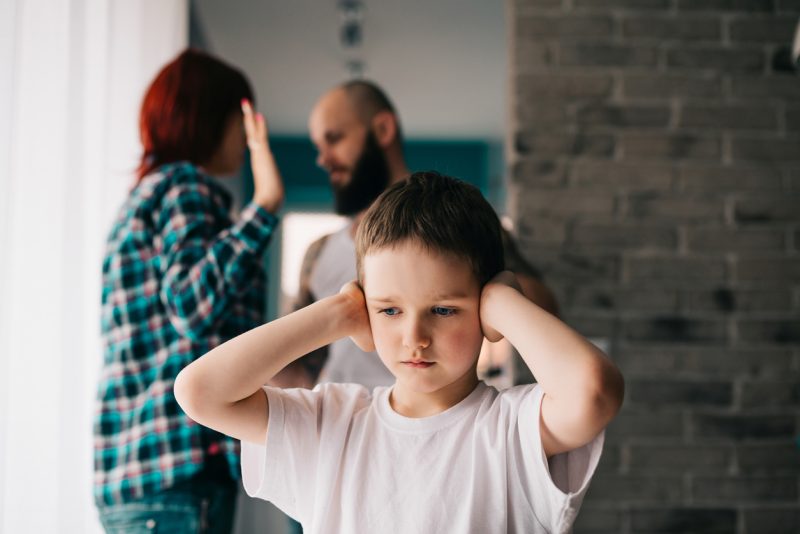
All reports are telling us that one of the impacts of COVID-19 because of the population needing to stay at home is causing an increase in Domestic Violence. Firstly: If you feel unsafe or are concerned for someone’s safety please call 000 or one of the Domestic Violence Support services below.
These are exceptional circumstances and it does not excuse aggressive behavior or any type of behavior that could constitute domestic violence.
Are you working from home and feel like you’re trapped and don’t have any relief or time to yourself? You’re easily annoyed at your partner &/or kids?
Remember no-one signed up for your BS! Take accountability and go for a regular walk to get some air, exercise and if you need some space.
During these times there are many professional services you can talk to, like: Online counsellors, 24/7 phone support and even chat services. Google them and connect to a service now! If you a man, a good initial support service to approach would be men’s Referral Service: 1300 766 491 and if your a women a good initial support service to approach would be 1800 Respect National Helpline: 1800 737 732
You might even have lost your job and feeling sad and lost, these feelings are normal, remember you are human. If you don’t know how you’re going to pay the bills like rent, the mortgage, school fees or food. The best thing you can do is act quickly. Sign up to a MyGov account and register for Centerlink. Talk to your rental agents, your bank and the school they will all be very supportive during these times.
Emergency relief organisations provide immediate financial and/or material support to people in financial crisis. The type of assistance offered by each organisation varies, so log onto the Department of Social Services Emergency Relief website and find the support service closest to you.
Its especially time to be kind, supportive and tolerant of each other but it is very important to recognize the signs of domestic violence.
This is what typically a cycle of Domestic Violence looks like:
- Stand-over phase (intimidation)
- EXPLOSION
- Remorse Phase (Justification)
- Pursuit Phase (Promises)
- Honeymoon Phase (Behaves like the perfect partner)
- Build-up Phase (Increasing tension again)
Domestic Violence is not just hitting, other categories are:
- Social
- Isolating family or friends
- Jealousy, accusing of affairs
- Controlling appearance
- Needing total attention
- Smashing or removing mobile
- Monitoring phone calls, internet or messages
- Preventing social or employment opportunities
- Denigrating family or friends
- PHYSICAL
- Murder
- Strangling or suffocating
- Throwing objects
- Punching, hitting, slapping
- Reckless driving
- Use of weapons
- Hair pulling, spitting
- Locked Inside or Outside
- Damage to possessions
- Cruelty to pets
- Forced substance abuse
- Withholding access to medical help
- Over or under medicate
- Trivialization of medical conditions
- Taunting someone in a vulnerable state
- VERBAL
- Insults and put-downs
- Silent treatment
- Name calling
- Sarcasm
- Fault finding
- Lies
- Public Humiliation
- Threats
- Dominating conversation
- Yelling, shouting
- Whispering
- Being indiscreet
- Always correcting
- STALKING
- Excessive phone calls or text messages, emails or letters
- Driving past work or house
- Reading or taking mail
- Turning up at places where victim frequents
- PSYCHOLOGICAL/EMOTIONAL
- Threat to suicide
- Emotional blackmail
- Self -esteem erosion
- Criticizing appearance or body shape
- Undermining character
- scaring
- Implying mental illness
- Spreading rumors
- Private humiliation
- Denying education
- Jekyll and Hyde mood
- Minimizing or dismissing feelings
- Mind games
- SEXUAL
- Rape
- Rationing or denial of sex
- Sex on their conditions
- Denying choice of contraception
- Beliefs and practices around female circumcision
- Enforcing sexual practices they are not comfortable with
- Pornography
- Sex in-front of children
- Bestiality
- Forced abortion
- Risky behavior
- FINANCIAL
- Total control of finances
- Restricting earning
- Rationing or placing conditions on money
- Drinking, gambling
- Control of shopping expenditure
- Concealing assets
- Unable to buy new clothes
- Forcing to take out loans on credit cards
- SPIRITUAL
- Denying choices
- Demanding you take on their beliefs
- Using beliefs to justify behavior
- Not allowing negotiation in children’s spiritual education
Let’s not forget the effects to children who are living in the home of domestic violence.
There are many effects that have been documented of emotional and behavioural problems in children exposed to domestic violence, these include:
- Low Self Esteem
- Poor conflict resolutions
- Repressed feelings of anger, fear, guilt and confusion
- Adjustment problems, fewer interests, fewer social activities
- Unwillingness to invite friends home
- Increased levels of anxiety
- Clinginess
- Adolescent boys abusing girls
- Excessive cruelty to animals
- Stress-related physical ailments, headaches, stomach aches, ulcers, bed-wetting
- Eating problems – decreased or increased apitite
- Sleeping problems including nightmares
- Hair pulling, nail biting
- Fear of making mistakes
- Fear of being touches
- Aggression, temper tantrums
- Increased internalized problems, such as depression, withdrawal, isolation, loneliness
- Decreased cognitive abilities
- Poor school performance, difficult to do homework or study
- Restlessness
- Decreased empathy
- Suicidal thoughts
- Lower rating in social competence (especially in boys)
- Inability to form stable adult relationships
- Higher risks of alcohol – drug abuse and juvenile delinquency
There is every reason in the world to get yourself help and stop domestic violent behaviour, seek out help immediately. Don’t fool yourself, every negative action erodes both your partner, children, family relationships and your quality of life.
Family and domestic violence support services:
- 1800 Respect National Helpline: 1800 737 732
- Women’s Crisis Line (NSW): 1800 811 811
- Safe Steps Crisis Line (Vic): 1800 015 188
- Men’s Referral Service: 1300 766 491
- Lifeline (24-hour Crisis Line): 131 114
- Relationships Australia: 1300 364 277


 You could not imagine how much importance your child puts on your promises i.e. when you said you would buy them that special gift, when you promised you would be there for them, there are times they know its boring for you but in the end it makes them feel secure and loved that you are there.
You could not imagine how much importance your child puts on your promises i.e. when you said you would buy them that special gift, when you promised you would be there for them, there are times they know its boring for you but in the end it makes them feel secure and loved that you are there.























Introducing your child to your new partner
The advice in this article will be very difficult for some of you to agree with. That being said, let me also say that generalizing about people whose lives may be very complicated is difficult to do, so these are just general guidelines not informed by your particular story.
My rule of thumb is that divorced and separated parents should keep children out of their social lives until they have been separated or divorced for a period of at least two years and you have known your potential new partner for at least a year. Let me explain the easy things first.
New Partners
You might think your new partner is the greatest thing since sliced bread, but at one time you thought the same thing about the person whose name is on the bottom of the restraining order you just got. It’s hard to resist the power of someone who not only makes you feel good about yourself but reinforces your negative feelings about your ex.
With all of that conflict to concentrate on (especially if both of you are going through divorces), who has time to create trouble in the new relationship? What happens as a result is an extended “honeymoon period” in the new relationship. Having your kids along with your new partner helps legitimize the relationship, especially if your kids like your new partner’s kids and everyone gets along—but it might very well place unnecessary pressure on the kids.
Reasons to Take It Slow
One reason to take it very slow in having your children cozy up to your new partner is that often, the “second time around” relationship is just as bad as or worse than the first relationship you had, and you want to get away from that person too. That may be fine for you, but what if your kids like that person and the people who tag along with him or her? What happens then is that your children go through another round of sad separations, and ultimately they become mistrustful and suspicious of the next round of people you bring them into contact with. For kids, these separations can be as painful as the divorce from their mother or father.
Then there are the situations where you bring your children into contact with your new partner and they hate that person. What you have created in that circumstance is a pipeline of complaints that go from your children to the other parent, and that creates yet another set of problems.
Children of divorced parents often feel split loyalties between a new partner or parent figure and a biological parent. This is made worse when one of the biological parents is insecure or angry. It is very easy for children to pick up on, and as a result they try to please and soothe that parent by being critical of Mom or Dad’s new boyfriend or girlfriend.
With all of the problems that are associated with bringing children into contact with new boyfriends and girlfriends, it is a wonder why people do it with such frequency. There are two main reasons: One is that when parents separate they yearn for the return of a “normal” life with a companion. In their desire to create that normal life, they make decisions too quickly or without thinking through all of the possibilities and often end up replacing one dysfunctional relationship with another. As adults we are entitled to do this until we get it right, but we should try to avoid exposing children to our dating disasters. Related to this is the second main reason—when a parent adopts the philosophy that “My kids and I come as a package deal. If you think you want to be with me, my kids have to approve.” This is a perfectly reasonable philosophy, but it must be employed later rather than sooner. You should figure out whether the person is worth having your children evaluate them first.
Why the Two-Year Rule Works
I advocate the two-year rule because by the one-year mark most couples have seen each other at their best and at their worst. If you have seen your partner at your worst and he or she does not try to damage your self-esteem when you fight, and you have successfully solved many of the relationship problems you could not solve with your ex, then your relationship has a better than 50-50 chance of succeeding in the long term. I have seen quite a few complicated and difficult circumstances arise because people are in too much of a hurry to introduce their children to their new partners.
Another advantage is that after some time has passed, even young children will expect their mothers and fathers to want companionship, and the children will not be as focused on wanting to reunite the family. There is no guarantee your child will ever stop wanting this, but in most cases children will want it less after a few years or at least accept the reality that it’s not going to happen.
Once you have passed the two-year mark of being out of your old relationship, and once you know your new partner for a year, you can start talking to your children about meeting your boyfriend or girlfriend. If your children are old enough to understand what a boyfriend or girlfriend is, don’t beat around the bush. This is actually one of the advantages you have gained by waiting such a long time before introducing the person.
The Sleepover Question
Different people have different ideas about whether parents should invite their boyfriends or girlfriends to sleep over at their house. I would say avoid it, especially with young children. Children are growing up very quickly these days, and they will start to ask questions about whether you are having sex with your boyfriend or girlfriend because you are sleeping with them. You could properly tell them this is none of their business, but the situation will nevertheless make them feel uncomfortable, and you will ultimately have to deal with what kind of model this presents to your children, especially when they are fifteen years old and want to bring their boyfriends and girlfriends home to your house to sleep over.
Finally, it might be very tempting to bring your little children into bed with you and your new partner to snuggle or watch television, but I have seen this cause problems between mums and dads who become furious at the thought of their children climbing into bed with someone who is a “stranger” to them and cuddling. Before you permit your child to do this, ask yourself it is worth the legal fees you will have to spend in order to convince someone that you think there is no harm in it.
Quick Tips